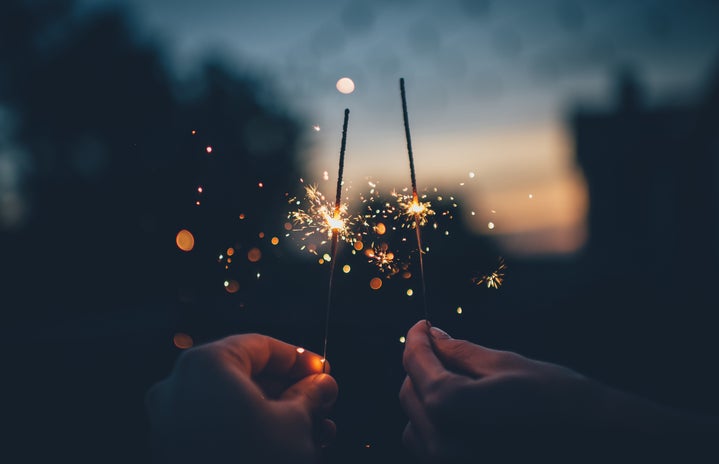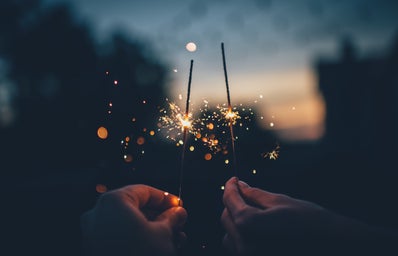‘Inclusive Excellence’ is often considered a buzzword on campus, yet there are many active organizations working towards making the University of Denver a more welcoming, tolerant place. Second years Chiemerie Ogbonnaya and Cate Daniels, President and Vice President of Black Student Alliance, were willing to speak about their engagement with Black Student Alliance and experiences being a person of color at the University of Denver, a Predominately White Institution (PWI).
Black Student Alliance is made up of sixty members and meets on Thursdays, 6:30-7:30pm in Sturm 380.
Chiemerie Ogbonnaya and Cate Daniels, President and Vice President of BSA
What encouraged you to become a member, and later occupy a leadership position, in BSA?
C.O.: Understanding my identity as a black woman is something I have always cherished and strove to understand how to cultivate on a predominantly white campus. I looked to BSA to be a safe haven where my identity was welcomed and appreciated. I did not come into BSA with the intention to occupy a leadership position; however, after seeing the change and impact, BSA has on the University of Denver campus, I realized I could not sit and watch from the sidelines. I had to get in on this movement, and what better way than to be the next BSA President?
C.D.: BSA immediately felt like a community I could connect with full of people who would simultaneously support me and also push me to be the best student, leader, and person I could be. I was driven to become the Vice President because BSA has been one of my favorite parts of my DU experience, and I wanted to make sure that other students were given the same opportunities I have been. I wanted to make sure that we could build on the foundation laid for us by previous members and continue to grow together and promote true inclusivity on campus.
How has BSA influenced your student experience?
C.O.: It is interesting to see others live out their college experience never knowing BSA exists because BSA has become a large portion of my college experience. Every moment on campus, I am greeted by friendly faces associated with BSA. We have expanded so much on campus that I feel a sense of community that I have never felt before. It is such a privilege to represent an organization as BSA because it has given me a sense of networking, acknowledgement, and comradery amongst hundreds on the University of Denver campus.
Why do you feel it is important to have organizations such as BSA on campus, especially on a predominately white campus such as DU?
C.D.: It’s especially important to have organizations like BSA on PWIs like DU because every person should have a space where they don’t feel like the minority. In order to do well as students and professionals, we need to be surrounded by people who understand us. We need to connect with people who will share in the appreciation of our culture, and who we can relate to on multiple levels. BSA also serves as a means to education about the Black Experience for those who aren’t familiar with it, and we believe that learning about other ways of life helps us act with empathy and motivates us to push towards justice.
BSA members at one of their outings
How can BSA and the DU community approach and tackle difficult issues such as racism and POC representation on campus?
C.O.: BSA does a lot in educating the campus on the experiences of black students. We host events for the entire campus and open our meetings up as well. At each meeting, we strive to educate participants about the POC perspective and things such as micro-aggressions and many more are brought up. Oftentimes it seems as though the responsibilities of a lot of these difficult issues fall upon BSA, but we are working zealously to ensure the entire campus takes it upon themselves to tackle racism and misrepresentation. It takes BSA to start a movement, but it takes the campus to drive a revolution.
What activities does BSA engage in at your meetings and on an annual basis?
C.O.: BSA meetings are themed each week. We have had meetings highlighting hip hop history, followed by a 90’s hip hop party. We have had meetings involving black pride, followed by a wild n’ out experience, which is a huge part of most black millennials childhood. We also work to embody our motto “Lit but Woke.” We make our meetings fun but also educational. This quarter, we had an N word meeting, where we facilitated dialogue about the history and the connotations behind this word and how it has transgressed to different communities. We also engage in a BIG XII conference each year, which is an all-expense paid three-day experience where BSA’s of other predominantly white institutes come together in a different state. This year’s conference is in Waco, Texas, and BSA chapters go through enriching seminars about black identity in the workplace, school, and society.
Can non-black students engage/join BSA? In particular, how can white students show their support?
C.D.: ABSOLUTELY! We want as many people as possible to come to BSA, and our door is always open for anyone to attend meetings (plus, we usually have free food). Students outside of the black community can show support by coming to meetings and events with an open mind and connecting with members and speaking up against racism when they hear it from their peers.


